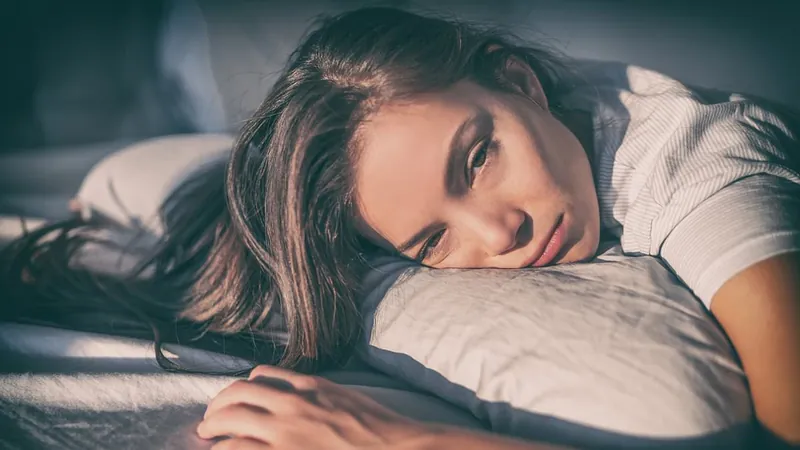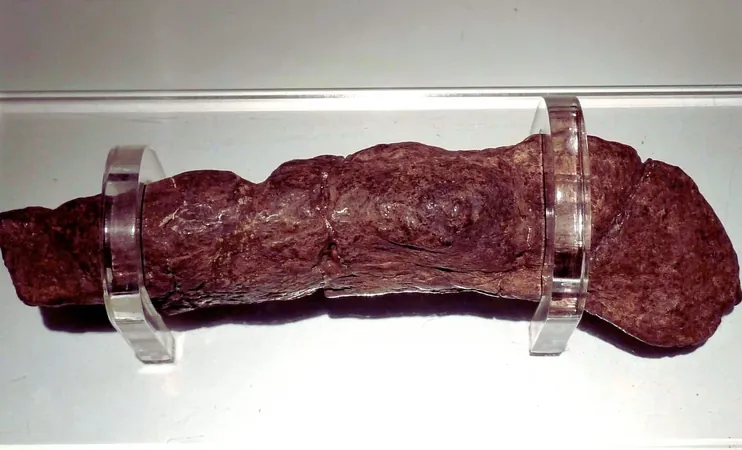
Unlocking the Secrets to Sleep: What Modern Science Reveals About Resting Like Our Ancestors
2025-06-16
Author: Jessica Wong
The Sleep Myth Busted
For years, we've been bombarded with claims that we must clock in seven to nine hours of sleep each night to avoid dire health consequences like obesity and depression. But what if everything we thought we knew about sleep was fundamentally flawed? Enter Dr. Merijn van de Laar, a Dutch sleep scientist, who dares to challenge the status quo, proclaiming that sleeping less than seven hours and waking up during the night isn't the end of the world.
Lessons from Our Caveman Ancestors
Dr. van de Laar suggests that to achieve a truly restorative night’s sleep, we should take a page from our prehistoric predecessors. These early humans thrived in environments that naturally facilitated better sleep: they walked nearly 20,000 steps daily, lived free from the distractions of modern technology, and often snuggled up with their dogs.
The Truth About Sleep Needs
In his eye-opening book, 'How to Sleep Like a Caveman,' Dr. van de Laar uncovers startling revelations: most individuals do not require eight hours of sleep, and conventional sleep medications may be doing more harm than good. According to the CDC, a significant number of adults—14.5%—struggle to fall asleep, while 18% find it hard to stay asleep. However, Dr. van de Laar highlights that waking up at night might be perfectly normal.
Step Up Your Game
Research confirms that our ancestors’ active lifestyles contributed to their need for ample sleep. Hunter-gatherers would cover vast distances on foot, with men averaging 19,000 steps and women around 11,000 steps daily—a stark contrast to today's average of just 5,000 steps. Recent studies show that moderate walking dramatically improves sleep quality; those who walked an additional 2,000 steps reported longer, better sleep.
Bark Your Way to Better Sleep
Did you know that owning a dog could enhance your sleep? As historical evidence suggests, humans and canines have shared sleeping quarters for thousands of years. A 2019 study found that dog owners sleep approximately 53 minutes longer than their non-pet-owning counterparts, likely due to increased physical activity and the comforting companionship that dogs provide.
Eat Like a Caveman for Better Zzz's
Dr. van de Laar also advocates for adopting a Paleo-style diet, rich in unprocessed foods like lean meats, vegetables, nuts, and seeds. Ancient diets, which were protein-heavy, appear to correlate with improved sleep quality. Recent studies indicate that individuals who consume more protein may enjoy sounder sleep due to stable blood sugar levels.
Ditch the Digital Distractions
Finally, it’s time to address the elephant in the room: technology. In our quest for good sleep, it’s crucial to cut out distractions like cell phones and alarm clocks. A 2023 study revealed that constant clock watching exacerbates insomnia. Dr. van de Laar urges us to remove visible timepieces from our bedrooms to foster a more peaceful sleeping environment.
Revolutionize Your Resting Routine
Armed with these ancient insights and modern research, it’s clear: the path to better sleep doesn't solely lie in the hours counted but in the lifestyle embraced. By moving more, eating better, enjoying canine companionship, and reducing distractions, we can reclaim restful nights—just like our ancestors did!




 Brasil (PT)
Brasil (PT)
 Canada (EN)
Canada (EN)
 Chile (ES)
Chile (ES)
 Česko (CS)
Česko (CS)
 대한민국 (KO)
대한민국 (KO)
 España (ES)
España (ES)
 France (FR)
France (FR)
 Hong Kong (EN)
Hong Kong (EN)
 Italia (IT)
Italia (IT)
 日本 (JA)
日本 (JA)
 Magyarország (HU)
Magyarország (HU)
 Norge (NO)
Norge (NO)
 Polska (PL)
Polska (PL)
 Schweiz (DE)
Schweiz (DE)
 Singapore (EN)
Singapore (EN)
 Sverige (SV)
Sverige (SV)
 Suomi (FI)
Suomi (FI)
 Türkiye (TR)
Türkiye (TR)
 الإمارات العربية المتحدة (AR)
الإمارات العربية المتحدة (AR)